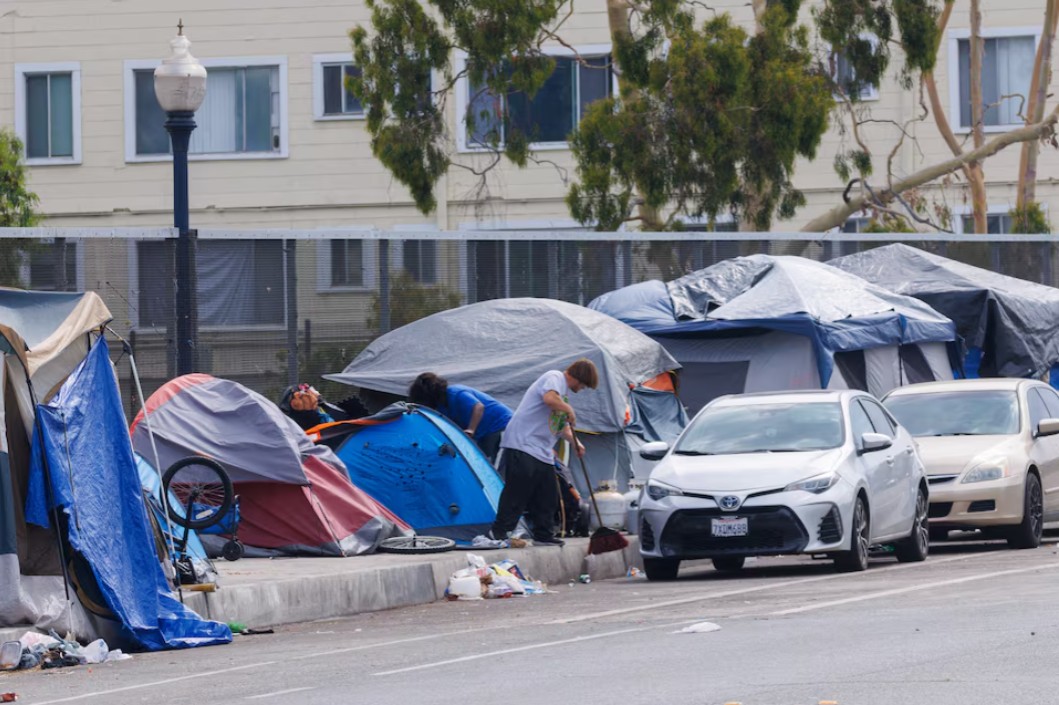
WASHINGTON – There was a record 18 percent rise in homelessness in the US in the last year, driven by factors like unaffordable housing, high inflation, systemic racism, natural disasters and rising immigration, the US Department of Housing and Urban Development said on Friday.
The problem of homelessness has been getting worse in the US, with commonplace sightings in many cities of destitute people living in the open, with tents pitched on city sidewalks.
The federal and state governments have pushed with divergent strategies to deal with the crisis.
READ MORE: US cities remain clueless as thousands go homeless
A total of 771,480 people – or about 23 of every 10,000 people in the US – experienced homelessness in an emergency shelter, safe haven, transitional housing program, or in unsheltered locations, according to data released on Friday.
Overall, the number of people experiencing homelessness increased by 18 percent between 2023 and 2024, the data showed. The previous such annual data released last year had shown a 12 percent rise in homelessness.
Between 2023 and 2024, children under the age of 18 were the age group that experienced the largest increase in homelessness, marking a 33 percent rise with 150,000 children experiencing the crisis, according to the data.
Black people, who made up 12 percent of the total US population and 21 percent of the US population living in poverty, represented 32 percent of all people experiencing homelessness, the data showed.
ALSO READ: US people living in cars find solace in safe parking
"Our worsening national affordable housing crisis, rising inflation, stagnating wages among middle- and lower-income households, and the persisting effects of systemic racism have stretched homelessness services systems to their limits," said the Department of Housing and Urban Development.
It also noted "additional public health crises, natural disasters that displaced people from their homes, rising numbers of people immigrating to the US, and the end to homelessness prevention programs put in place during the COVID-19 pandemic".


